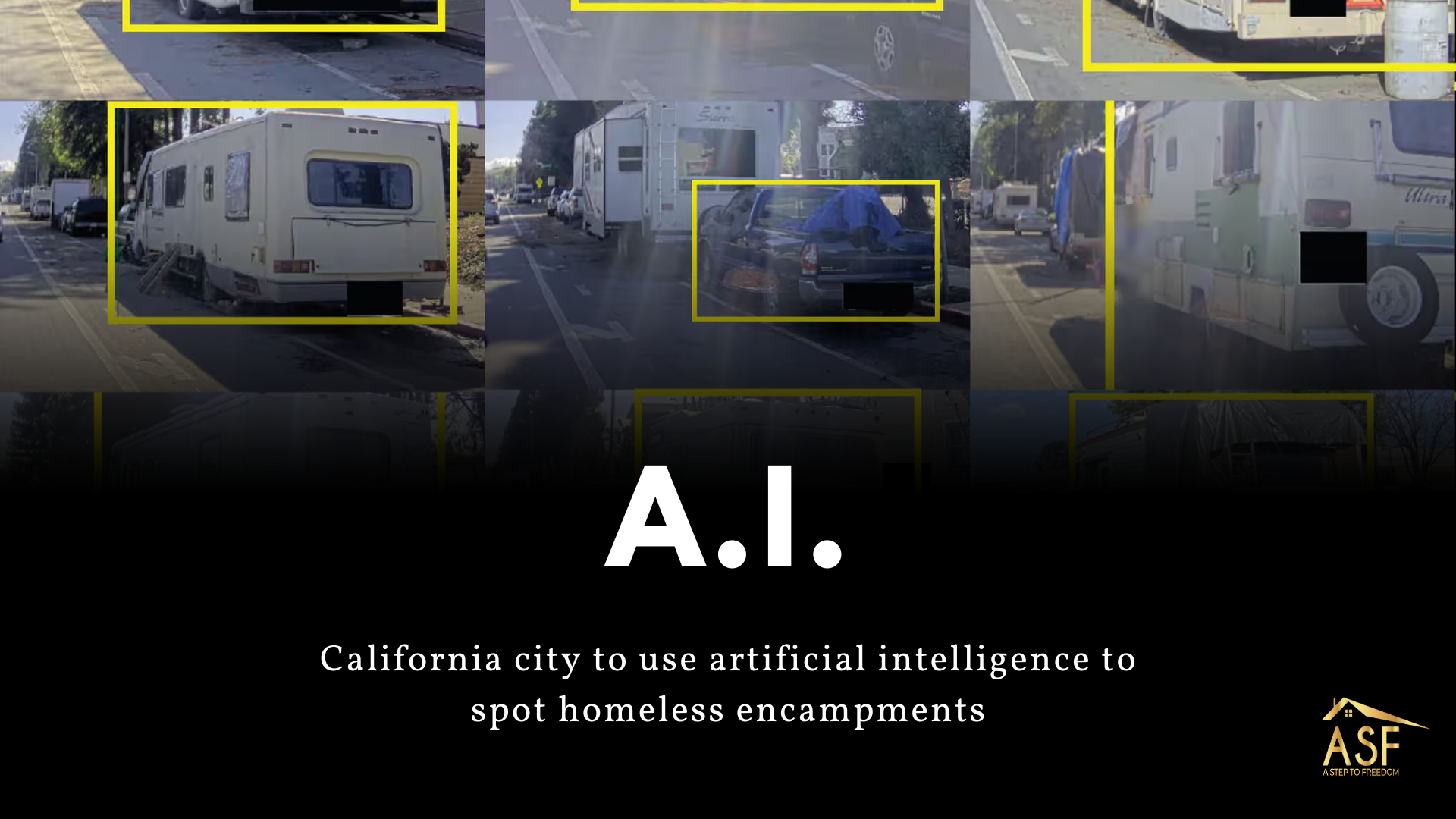The Most Controversial Use of AI Yet: San Jose's Plan to Combat Homelessness

The city of San Jose, California is implementing a controversial new artificial intelligence system to detect homeless encampments throughout the city. The AI technology, developed by a startup called Zyrex, uses camera footage and machine learning models to identify tents, tarps, and other signs of outdoor living. The goal is to provide real-time data to city workers and homeless outreach teams to rapidly identify and address encampment sites.
Privacy advocates have raised concerns that the AI system is an invasive form of surveillance that could potentially criminalize homelessness. There are fears the technology could be expanded to track and monitor individual homeless people without their consent. The city maintains the program will simply allow more efficient allocation of resources and services to those in need.
San Jose has one of the highest rates of unsheltered homelessness in the country, with over 7,000 people living outdoors or in encampments as of 2022. City officials say traditional methods of reporting and responding to homeless camps have proven ineffective given the scale of the crisis. The $1.2 million AI pilot program is set to run for two years before being evaluated.
Zyrex claims its AI can detect camps with over 90% accuracy by analyzing patterns like clusters of tents and accumulations of debris and waste. However, experts warn that machine learning models trained primarily on data from whiter, wealthier areas may misidentify belongings of homeless people of color.
The ACLU has voiced opposition, stating "Systems of mass surveillance supercharge discrimination... We should be skeptical when governments want to automate operations that have historically driven criminalization."
(Source: "Revealed: a California city is training AI to spot homeless encampments", The Guardian, March 25, 2024)
Related articles
Why Permanent Housing and Workforce Development Are Core to Our Mission
At A Step to Freedom (ASF), our mission is rooted in creating long-term pathways to stability for individuals impacted by homelessness, incarceration, and systemic barriers. We don’t just offer services—we provide solutions. And two of the most critical pillars of that solution are permanent housing and workforce development. These aren’t just programs. They’re lifelines. Together, they address both the urgency of today and the sustainability of tomorrow. Housing Is More Than a Roof—It’s a Foundation We believe permanent housing is a human right. When a person secures safe, stable shelter, it opens the door to healing, progress, and possibility. Without a consistent place to rest, recover, and regroup, navigating employment, reunifying with family, or managing health becomes nearly impossible. That’s why our interim housing program isn’t the end goal—it’s a stepping stone. Permanent supportive housing is the true milestone. It marks the moment a person no longer lives in survival mode but begins to rebuild their life on solid ground. Workforce Development Creates Dignity and Direction At ASF, we know that financial independence plays a vital role in breaking the cycle of homelessness. Through our Workforce Development program, we offer job readiness training, life skills, and career exploration—all designed to equip our clients with the confidence and tools they need to thrive in today’s job market. But beyond the paycheck, employment restores something deeper: dignity, purpose, and self-worth. When someone can support themselves and their family, they are empowered to reclaim agency over their future. That’s transformation. When the Two Work Together, Lives Change We’ve seen it time and again: when clients move into permanent housing and complete our workforce development cohorts, their lives shift dramatically. They reconnect with family. They enroll in school. They start businesses. They give back to their communities. These outcomes don’t happen by accident—they’re the result of strategic, trauma-informed, wraparound support designed to meet people where they are and walk with them as they rise. This Is Why We Do What We Do Permanent housing and workforce development are more than programs—they’re proof points. They show that with the right support, people don’t just survive adversity—they grow through it. They start over, stronger. They break cycles that have lasted generations. And this is the heart of our mission: to ensure that every person who walks through our doors leaves with not just hope, but a plan.
Empowering Women, One Step at a Time: ASF’s Role in Women’s History
Throughout history, women have led movements, built communities, and changed the world—often while overcoming incredible barriers. Yet, for many women today, especially those facing homelessness, justice involvement, and economic hardship, opportunities for stability and success are still out of reach. At A Step to Freedom (ASF), we recognize that empowering women is key to building stronger communities and breaking cycles of poverty and incarceration. For over three decades, ASF has provided life-changing programs that support women in finding housing, securing employment, accessing mental health resources, and reuniting with their families. As we celebrate Women’s History Month, we honor the resilience of women throughout history by ensuring that the women of today—especially those facing the toughest challenges—have access to the resources they need to heal, rebuild, and thrive. The Reality for Women Facing Homelessness & Reentry Women experiencing homelessness and reentry face unique struggles that make their journey to stability even more challenging: 💔 Domestic violence is one of the leading causes of homelessness for women. Many women flee unsafe homes only to find themselves without a stable place to go. 💔 Mothers experiencing homelessness often have to make impossible choices. Without secure housing, many women lose custody of their children, making reunification a long and difficult process. 💔 Formerly incarcerated women struggle with economic barriers. Many employers refuse to hire women with justice-involvement histories, making financial independence difficult to achieve. 💔 Period poverty disproportionately affects unhoused women. Without access to basic menstrual hygiene products, many women face additional health risks and barriers to dignity. ASF is breaking these barriers by providing programs tailored to meet the needs of women in crisis. ASF’s Commitment to Women’s Empowerment ASF believes that empowering women is more than providing temporary relief—it’s about creating lasting change. Our programs help women regain their footing, build confidence, and secure the resources they need to move forward. Housing & Family Reunification: A Fresh Start A stable home is the foundation for rebuilding a woman’s life. ASF provides:✔️ Transitional housing to give women a safe place to heal and stabilize.✔️ Permanent housing support to help women secure long-term homes.✔️ Family reunification services to reconnect mothers with their children after periods of separation. Workforce Development: Creating Economic Independence We believe financial security is key to long-term stability. Our workforce development programs help women:✔️ Gain career training and employment placement opportunities.✔️ Learn financial literacy to build savings and plan for the future.✔️ Connect with employers willing to give second chances to formerly incarcerated women. Period Poverty & Women’s Health: Dignity for All Women ASF is committed to eradicating period poverty by distributing hygiene products to unhoused women. Thanks to partnerships with brands like The Honey Pot, we are ensuring that no woman has to choose between food and menstrual products. Reentry & Mental Health Support: Healing from Trauma Justice-involved women face significant barriers after incarceration. ASF’s reentry programs provide:✔️ Mental health services to help women process trauma.✔️ Legal assistance to remove barriers to employment and housing.✔️ Community support networks to reduce isolation and increase self-confidence. Honoring the Women Who Inspire Us ASF is honored to work with women leaders, community advocates, and volunteers who are paving the way for a more just and equitable future. This Women’s History Month, we celebrate: 🌟 The resilient women in our programs who have fought for a second chance.🌟 The ASF team and volunteers who work tirelessly to support women in need.🌟 The women leaders and activists who have broken down barriers so that future generations can thrive. Women’s history is still being written, and at ASF, we are committed to making sure every woman has the opportunity to be part of it. How You Can Support ASF’s Women’s Initiatives This Women’s History Month, you can be part of the movement to uplift and empower women by: ✅ Donating: Your support provides housing, job training, and essential supplies for women in need. Donate today.✅ Shopping Merch for Cause: Every purchase from our Merch for Cause collection supports ASF’s programs for women. Shop now.✅ Volunteering: Give your time to help women transition into stability and success. Sign up here. Together, we can empower women, one step at a time—not just this month, but every day of the year. #ASFImpact #WomensHistoryMonth #EmpowerWomen #SecondChances #EndHomelessness


